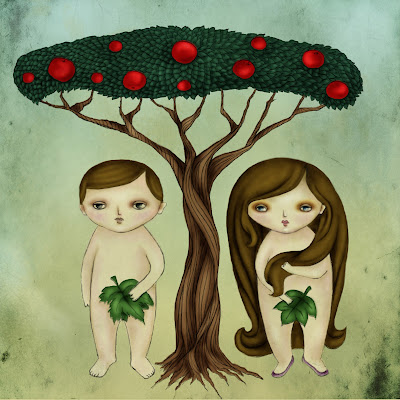There’s nothing like the smell of freshly baked bread is there? There’s something about that smell that just transports my soul back to my childhood. Watching my mom and her mom make bread was a regular part of my upbringing. However, my mom and grandma were much faster at it than Sara is. Not because they were faster, and not because they were better bakers either. But only because the bread that they made was unleavened, a flatbread. Many cultures are known for their flatbreads, and they of course go by many names. For me, I knew it as a tortilla. Our Jewish siblings know it as matzo. Our Norwegian neighbors know it as lefse. And many Asian countries know it as naan, just to name a few. It is much faster to make than leavened bread, but don’t let that fool you.
Any kind of bread is a time-consuming process. In fact, it took so much time and effort for our ancient ancestors, as I learned this week going down the rabbit hole of the history of bread, that they only made it for special occasions, in the same way we have cake for a birthday or wedding. There’s a little bit of trivia for your next cocktail party. But then some genius baker discovered yeast, which added a whole new dimension to not only the flavor of bread but also its preparation. Scholars think that happened around ten thousand years ago somewhere in the Fertile Crescent of Western Asia. Leavened bread may be delicious, as well as beautiful, but it made an already time-consuming process even longer because now you had to wait for the bread to rise. So, all of this is fascinating, but why would Jesus compare it to the realm of God?Jesus said that the realm of God “is like yeast that a woman took and mixed in with three measures of flour until all of it was leavened.” I think we can take away at least four lessons from this, to teach us what Jesus meant by this comparison, to teach us how we can live this out. Those lessons are: the realm of God takes time, it is bold, it is communal, and it takes work. But first, what do we mean by the “realm of God”? I really like this translation. We usually hear this as the “kingdom of God”, but not only is that overly gendered, but it’s just not that accurate. Kingdom is too small. Not only is it a human concept but it just has too many limitations. The word kingdom implies borders, walls. And I don’t think anyone here believes that God’s realm has borders or walls! So “realm” works much better.
God’s realm is wherever God has power and influence. And who are we always saying that God’s hands are in this world? Whoever wants to assist God in spreading her realm across the globe. Ok, so now that we have a working definition of “the realm of God”, let’s see what kind of yeasty lessons Jesus has for us. Now the first of those lessons is an easy one, it takes time. God’s realm takes time. It’s not a race. We’re not in the business of seeing how many souls we can save in record time! Those that are really interested in spreading God’s realm have got to be willing to play the long game. It’s not going to happen overnight, or even over a month. It’s gonna take a lot of patience and waiting, just like waiting for bread dough to rise. Now, let’s talk about the boldness of God’s realm.
Another word might be potent. Just like it doesn’t take much yeast to make a loaf of bread rise, it doesn’t take much of God’s realm to make a difference in the world. And I think what makes it so potent, what makes it so bold, is how different it is. I mean, think about how different yeast is! It can make a whole host of delectable baked goods, it can be used to make ethanol fuel, and let’s not forget, without yeast, we couldn’t make liquid bread, beer! However, yeast can also cause food to spoil, as well as cause a plethora of infections throughout the human body! It is a strange part of planet Earth. Likewise, the realm of God is also seen as a bit strange. The realm of God declares winners when there wasn’t even a race! It interprets people’s words and actions in the best possible light rather than the worst!
It lets go of grudges way sooner than is deserved! It teaches silly things like loving our enemies, and sharing rather than saving. How weird is that? More than weird though, these are bold, potent, ways of being in the world, that too often go against the grain of humanity. The next lesson is that the realm of God is communal. Jesus said that the woman was using three measures of flour. That’s about 40 pounds of flour. 40 pounds! Why in the world would she be using that much flour? Because bread-making in the ancient world was often a communal activity. In order to conserve the fuel needed to bake the bread, as well as other resources, a whole community would gather to make bread for everyone. God’s realm is meant to operate the same way. It is a team effort, where all participate, and where all get what they need.
And what do I mean by all? Who is included in this communal endeavor of spreading God’s realm? For that, we come to the last of these yeasty lessons, that God’s realm takes work, hard work. The bones of our ancient ancestors clearly show us that they knew what hard work was. Their bones show telltale signs of wear and tear, specifically on the parts of the body involved in making bread; wear on the knees from grinding grain to make the flour, wear on the hands from kneading that flour with the yeast. Have you ever kneaded dough? I would help my mom make tortillas sometimes and she would have me knead the dough because she had joint problems in her hands and wrists. After kneading for a while, I remember thinking, isn’t that enough? It wasn’t! And that was dough for a flatbread!
 |
| My lovely wife making bread dough as a visual while I preached this sermon. |
Like many gay pastors, he has recently been the victim of what can only be described as a character assassination. Two people from an ultra-conservative group posed as parents looking for help for the transgender child, met with him to talk, and recorded the conversation without his permission. Like many pastors, he trusted these people out of compassion for their child. Only to be taken advantage of, to have the video posted online, highly edited of course, all for the purpose of defaming a pastor who’s simply trying to save lives, from harm by others or themselves. He and his family and congregation are now enduring death threats, and harassment from so-called “Proud Boys” stationing themselves outside their house, hurling insults at them, and spreading lies to their neighbors.
Many in the area have come to their support. Which is great to see. However, I have to wonder, could that have been prevented? And if so, how could we prevent it in the future? Are we even planning for the next time this happens? This is where that evenly spread yeast comes in, the yeast that takes hard work evening out across God’s realm. Because what if, and I know this is a big what if, but stay with me here, dream with me, what if, we had spread God’s realm so evenly, so broadly,
that every church was a
Reconciling in Christ church,
that every church was a welcome
place,
that every church was a safe
place,
that every church was a healing place,
that every church was overflowing
with love,
that every church was flying a pride flag in support of their LGBTQ+ siblings, whether they had a gay pastor or not!
Because then, how would their enemies know who to target next!? Do you see how something as simple as a pride flag is so much bigger? This isn’t just about creating a safe place here? This is about creating a safe place everywhere, for everyone! This is a matter of life and death, and that’s no exaggeration! What if, we spread God’s realm so evenly, so broadly, that it created a blanket of protection upon this whole region? Can we dream that big? I don’t know. I do know this, small dreams make small results. So why not dream big? I honestly don’t think we have a choice but to dream big.
Not if we’re gonna take Jesus at his word, that the realm of God is like a woman mixing yeast into flour, until all of it is leavened. How can we not dream big, when we have a God who takes the time and waits patiently for us, whose love for us is boldly potent, who continually gathers us around this communal table, and who never tires of putting the work in for us. Dream big my friends. Dream, yeasty dreams, as we make bread for the world, with the world, for the sake of the world. Thanks be to God. Amen.




